A vibrant Opposition, the need of the hour
By Jaliya WIJEKOON
The origin of parliamentary democracy goes back many centuries to
Great Britain where it was found. Eventually it had been adopted by
parts of the global community as the most suitable form of government.
Prior to the Second World War a large number of countries, in the
East and the West, were under the British Empire and after winning
independence all of them absorbed parliamentary democracy, and started
governing their countries based on democratic policies and principles.
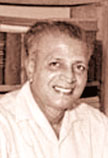 |
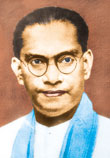 |
|
Dr. N. M. Perera |
S. W. R. D. Bandaranaike |
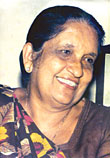 |
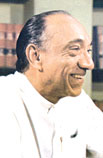 |
|
Sirimavo Bandaranaike |
J. R. Jayawardena |
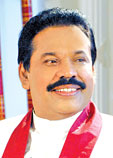 |
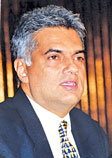 |
|
Mahinda Rajapaksa |
Ranil Wickramasinghe |
At present most of the developing and developed countries have chosen
democracy as their form of government.
Democracy
Democracy is not an English word but a combination of two Greek terms
DEMOS and CRATHOS. In Greek Demos means People and Crathos means rule.
These Greek terms formed the English word Democracy which means People's
Rule.
For democracy to function effectively there should be two main
components or integral parts-the ruling party and the Opposition. It has
been observed in most countries in the recent past that some democratic
parties formed coalitions with other parties to capture power, at times
with the support of even Opposition members which results in making the
Opposition weak, which is not a good trend in parliamentary democracy.
Great Britain was the first to practise parliamentary democracy,
yielding more powers to Parliament through the Magna Carta.
Thereafter democracy was strengthened and practised in its purest
form in the United Kingdom irrespective of the party in power.
Role of Opposition
The Opposition has a major role to play in the larger interest of the
nation under a democratic form of government. The Opposition is expected
to maintain a good rapport with the ruling party while keeping a close
tab on all affairs. The Opposition should always co-operate with the
government in settling national issues or finding solutions to the
problems which threaten national security or the country's territorial
integrity, putting aside party policies temporarily in the larger
interests of the nation.
This democratic character was quite evident in the United Kingdom
during the Second World War that Clement Atlee as the Opposition Leader
of the British Parliament extended his fullest support to Sir Winston
Churchill, the then Prime Minister to win the war for Britons.
The Opposition Leader of Sri Lanka during 1970-1977 J.R. Jayewardene
also extended his unconditional support to Prime Minister Sirimavo
Bandaranaike to crush the 1971 JVP insurrection against the government.
There have been several instances in countries which have democratic
form of governments when the Opposition parties generously saved the
ruling parties from political catastrophes.
The Opposition is also expected to actively take part in Select
Committees on various vital issues and make a contribution for cleaner
administration. Constructive criticism by the Opposition on important
matters which affect the future of the country is always expected to
prevent unhealthy measures being implemented by the ruling party. The
Opposition should always scrutinise the activities of all ministries and
departments and divulge the relevant and accurate information before the
public to disallow the authorities to act in any arbitrary manner which
might be detrimental to any section or segment of its stakeholders.
The Opposition has a greater responsibility to see that the
government maintains the cost of living in the country which directly
affects the masses. Some of the main responsibilities of a vibrant
Opposition have been highlighted and therefore, the Opposition party is
logically termed as the Watchdog of the Nation. In the eyes of political
analysts there is a popular maxim that says 'Today's Opposition is
tomorrow's ruling party.'
If pure democracy is found in any country, the transfer of power is
always negotiated with the grace of an evening tea party.
Illustrious Opposition leaders
Sri Lanka had been governed for over six decades on parliamentary
democracy and we have had some illustrious Opposition Leaders of which
only four became the national leaders at subsequent elections.
Dr. N.M. Perera was the first Opposition Leader of Independent Ceylon
when D.S. Senanayake was the Prime Minister. Dr. N.M. discharged his
duties as the first Opposition Leader quite admirably which was
appreciated even by the ruling party at times. S.W.R.D. Bandaranaike
became the Opposition Leader when Sir John became the Prime Minister and
S.W.R.D. dramatically marshalled all progressive forces and defeated the
ruling UNP at the subsequent election overwhelmingly and became the
Prime Minister with his far-sighted vision.
Sirimavo Bandaranaike became the Opposition Leader in 1965 when
Dudley Senanayake was elected Prime Minister and in the subsequent
election in 1970 she became the Prime Minister again with the support of
Felix Dias Bandaranaike, defeating Dudley's government, reducing its
strength to a mere 16 members in the House.
Dudley Senanayake passed away in 1973 and J.R. Jayewardene, the
undisputed deputy leader of the party, was unanimously appointed as the
party leader; he was already the Opposition Leader. J.R.Jayewardene with
his ocean of knowledge of politics and parliamentary democracy
discharged his duties admirably as the Opposition Leader.
Together with Sirimavo Bandaranaike, he defeated the unlawful
uprising in 1971 and he totally opposed the government extending its
term by two years in 1975. In 1975 he resigned his seat as a mark of
protest and scored a resounding victory at the by-election.
Whilst discharging his duties as the Opposition Leader, he made
sweeping developing changes in the party structure and consolidated the
membership in an unprecedented manner to face the forthcoming election.
He crisscrossed every nook and corner of the country and mobilised the
masses against the government whose popularity was on the wane due to
the rising cost of living and scarcity of essential foodstuffs,
following the closed door economic policies.
With his far-sighted vision and astute leadership qualities JRJ
mustered a historic five-sixth majority at the 1977 election. He formed
a very effective Cabinet with his lieutenants and ruled the country,
effecting constitutional changes according to his whims and fancies.
Debacle of Opposition
After 17 years of UNP rule, there was a change of government and the
United National Party became the main Opposition in Parliament.
Since then the UNP had cut a sorry figure except for a short stint of
two years when Ranil Wickremesinghe was elected Prime Minister at the
2001 General Election. Political analysts may cite numerous reasons for
the downfall of the main Opposition party, the UNP.
Nevertheless it is appropriate to scrutinise the circumstances which
had caused its erosion. The country was ravaged by the nearly three
decade LTTE battle which devastated approximately one-third of the
country and the mentality and day-to-day life of 90 percent of the
entire population irrespective of caste, creed, race or nationality.
People from all walks of life were under tension and uncertainty for a
long time due to the protracted conflict which had caused immeasurable
sorrow, trauma, unbearable shocks and irreparable losses to thousands of
people across the country.
The negative attitude of the main Opposition UNP towards this vital
national issue was the foremost reason for this debacle. Some Opposition
members humiliated the achievements of the valiant Security Forces when
the LTTE battle was at its peak.
The Opposition grossly overestimated the LTTE's military strength and
did not repose confidence in Sri Lanka's Security Forces to militarily
crush them while President Mahinda Rajapaksa was determined to eradicate
the menace.
On May 19, 2009 people far and wide heaved a sigh of relief which
eventually paid rich dividends for President Rajapaksa to return to
power for the second term which will officially begin from November this
year.
The subsequent general election was a cake walk for the Rajapaksa
government which debilitated the main Opposition UNP further.
Leadership threatened
Following the successive defeats of the United National Party, its
leadership has been challenged by certain party stalwarts and now it is
in a chaotic situation with different opinions emanating from different
quarters amidst a party reorganisational process.
The party's incumbent leader and all senior members should realise
that the need of the hour is not a leadership tussle but to reach a
compromise and maintain unity among its membership to save the grand old
party from further deterioration.
Past mistakes
The UNP should realise its past mistakes and explore the possibility
of bouncing back at a future election by venturing into realistic and
viable programs of work which should go down to grass rootslevel in all
corners of the country. The entire party mechanism should be
restructured to cater to the present day needs with the consultation,
compromise and consensus of all stakeholders.
Unity vital
The unity of the Opposition is of paramount importance in
reorganising the party to march forward. The ground work should be done
within a scheduled time frame on an electoral basis and enhance it to
provincial and national level eventually to project an effective
challenge at a future election.
Alternative, viable and attractive programs on all issues should be
formulated properly by the policy-making body of the party and
unanimously approved by the membership at a national convention.
Although the number of heads in the Opposition is limited everybody in
the House and other senior and prominent supporters of the party should
be delegated with organisational and development activities of the party
with time frames to achieve the desired goals.
The incumbent party leader and all other party stalwarts should sink
petty differences and work as a single unit to put the party back on
track. |

